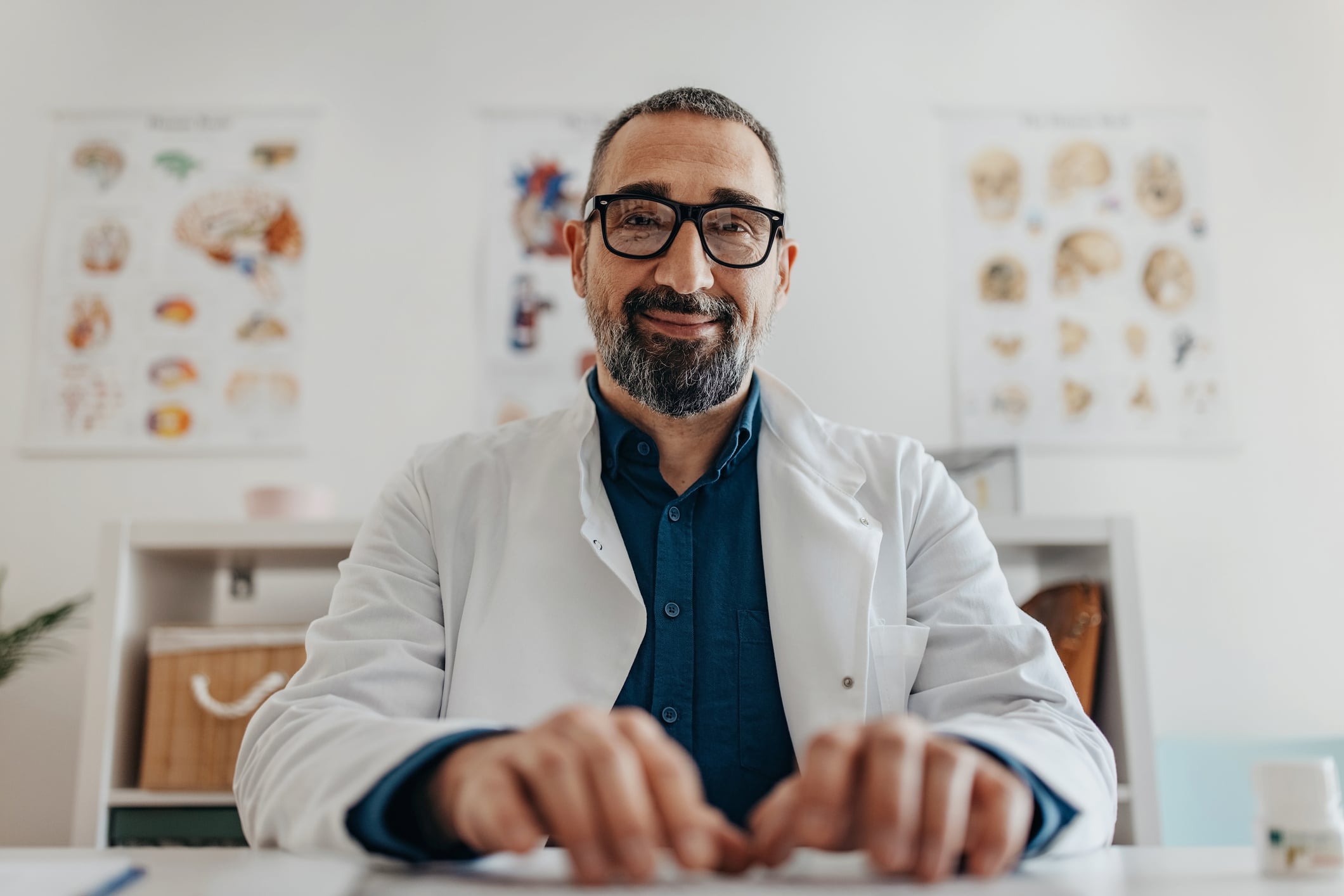Cardiomyopathy Treatment Services
Cardiomyopathy is a condition that affects the heart muscle, leading to a variety of symptoms and complications. There are several treatment options available to manage symptoms, slow disease progression, and prevent complications. Whether you have been recently diagnosed with cardiomyopathy or are seeking information about the condition, understanding the available treatment options can help you make informed decisions about your health and well-being.
What is Cardiomyopathy?
Cardiomyopathy is a medical condition that affects the heart muscle and its ability to function properly. In cardiomyopathy, the heart muscle becomes thicker, rigid, or weakened, which can lead to problems with the heart’s ability to pump blood and maintain a normal rhythm. There are different types of cardiomyopathy, each with its own unique characteristics and causes.
Cardiomyopathy: What Causes It?
Cardiomyopathy can be caused by a variety of factors. Genetic mutations can lead to inherited forms of cardiomyopathy. Infections, such as viral myocarditis, can cause inflammation in the heart muscle, leading to weakened heart function. Chronic diseases, such as high blood pressure, diabetes, or thyroid disease, can also contribute to the development of cardiomyopathy. Other factors may include alcohol abuse or exposure to certain chemotherapy drugs.
What are the Different Types of Cardiomyopathy?
The four main types of cardiomyopathy include dilated cardiomyopathy, hypertrophic cardiomyopathy, restrictive cardiomyopathy, arrhythmogenic cardiomyopathy, and left ventricular cardiomyopathy. Each type of cardiomyopathy has its own specific symptoms and treatment options, and understanding the differences between them is important for the proper management of the condition.
Dilated Cardiomyopathy
Dilated cardiomyopathy causes the heart muscle to become weak and thin, leading to an enlarged heart. As the heart becomes enlarged, it becomes less efficient at pumping blood, which can lead to heart failure. Dilated cardiomyopathy can be caused by genetic mutations, viral infections, alcohol abuse, or other underlying medical conditions. Common symptoms of dilated cardiomyopathy include shortness of breath, fatigue, swelling in the legs or abdomen, and irregular heartbeats.
Hypertrophic Cardiomyopathy (HCM)
Hypertrophic cardiomyopathy (HCM) causes the heart muscle to become abnormally thickened, making it harder for the heart to pump blood effectively. HCM is typically an inherited condition, caused by mutations in genes that control heart muscle growth. The thickening of the heart muscle can affect the heart’s ability to relax and fill with blood, leading to symptoms such as shortness of breath, chest pain, and fainting.
Restrictive Cardiomyopathy
Restrictive cardiomyopathy causes the heart muscle to become stiff and rigid, which can impede the heart’s ability to fill with blood properly. This stiffness is usually caused by the buildup of abnormal proteins in the heart tissue or the infiltration of other substances, such as iron or amyloid. Restrictive cardiomyopathy is a rare type of cardiomyopathy and can be caused by genetic mutations, but more commonly it is a result of other underlying medical conditions such as sarcoidosis, hemochromatosis, or scleroderma.
Arrhythmogenic Cardiomyopathy (ACM)
Arrhythmogenic cardiomyopathy (ACM) causes the heart muscle to become weakened and replaced by fibrous or fatty tissue. This condition can cause abnormal heart rhythms, or arrhythmias, and can lead to sudden cardiac arrest in some cases. ACM is typically an inherited condition, caused by mutations in genes that control the structure and function of heart muscle cells.
Left Ventricular Cardiomyopathy
Left ventricular cardiomyopathy (LVC) causes the left ventricle, the main pumping chamber of the heart, to become weakened and enlarged. This can lead to heart failure and other complications. LVC can be caused by a variety of factors, including high blood pressure, coronary artery disease, viral infections, and certain genetic conditions.
Common Cardiomyopathy Symptoms and Signs
The symptoms and signs of cardiomyopathy can vary depending on the type of cardiomyopathy and the severity of the condition. However, some common symptoms and signs of cardiomyopathy include shortness of breath, fatigue, chest pain, irregular heartbeats or palpitations, swelling in the legs or abdomen, and lightheadedness or fainting.
Some people with cardiomyopathy may also experience coughing or wheezing, difficulty exercising or performing physical activity, and decreased ability to tolerate exercise. In severe cases, cardiomyopathy can lead to heart failure, which may cause symptoms such as coughing, nausea, loss of appetite, and confusion.
How Cardiomyopathy is Diagnosed
Cardiomyopathy can be diagnosed by a cardiologist through a combination of medical history, physical exam, and diagnostic tests. The most common diagnostic tests for cardiomyopathy include electrocardiogram (ECG), echocardiogram, and cardiac MRI. An ECG measures the electrical activity of the heart and can identify any irregularities or abnormalities. An echocardiogram uses sound waves to create images of the heart and can identify any structural abnormalities or problems with heart function. A cardiac MRI provides detailed images of the heart and can identify areas of damage or inflammation in the heart muscle.


How is Cardiomyopathy Treated?
The treatment for cardiomyopathy typically involves a combination of medications, lifestyle changes, medical devices, and, in some cases, surgery. The goal of treatment is to improve the heart’s function, manage symptoms, and improve quality of life.
Medications for Cardiomyopathy
Several medications are available to treat the symptoms of cardiomyopathy, including diuretics, ACE inhibitors, beta-blockers, and calcium channel blockers. These medications help to reduce blood pressure, control heart rate, and improve heart function. In some cases, antiarrhythmic medications may be prescribed to help regulate the heart’s rhythm.
Cardiomyopathy Medical Devices
Medical devices such as implantable cardioverter-defibrillators (ICDs) and pacemakers can help regulate the heart’s rhythm and prevent sudden cardiac arrest. ICDs are recommended for patients with a high risk of sudden cardiac arrest due to ventricular arrhythmias, while pacemakers are used to regulate the heart’s rhythm in patients with bradycardia or slow heart rate.
Cardiomyopathy Lifestyle Changes
Lifestyle changes such as quitting smoking, reducing alcohol intake, and maintaining a healthy weight can help improve heart function and reduce the risk of complications associated with cardiomyopathy. Regular exercise, a healthy diet, and stress reduction techniques can also help manage symptoms and improve overall health.
Cardiomyopathy Surgery
In severe cases of cardiomyopathy, surgery may be necessary to improve heart function and reduce the risk of complications. Surgical options may include a ventricular assist device (VAD) to help the heart pump blood, a heart transplant to replace the damaged heart with a healthy one, or a septal myectomy to remove excess heart tissue in hypertrophic cardiomyopathy.
When to See a Cardiomyopathy Doctor
If you experience symptoms or signs of cardiomyopathy, it is important to see a cardiologist as soon as possible. Early detection and treatment of cardiomyopathy can help manage symptoms and prevent complications. In addition, if you have a family history of cardiomyopathy or have any underlying medical conditions that may increase your risk for cardiomyopathy, such as high blood pressure or a history of heart disease, it is important to see a cardiologist for regular check-ups and screening.
Cardiology Services in Angola, Indiana
If you or a loved one are experiencing symptoms of cardiomyopathy or other heart-related conditions, it is important to seek medical attention as soon as possible. At Cameron Hospital, our experienced team of cardiologists and cardiac specialists is dedicated to providing high-quality care and personalized treatment plans for patients with heart conditions. Contact us today to schedule an appointment and take the first step towards better heart health.

©2025 Cameron Memorial Community Hospital
416 E. Maumee Street, Angola, IN 46703
